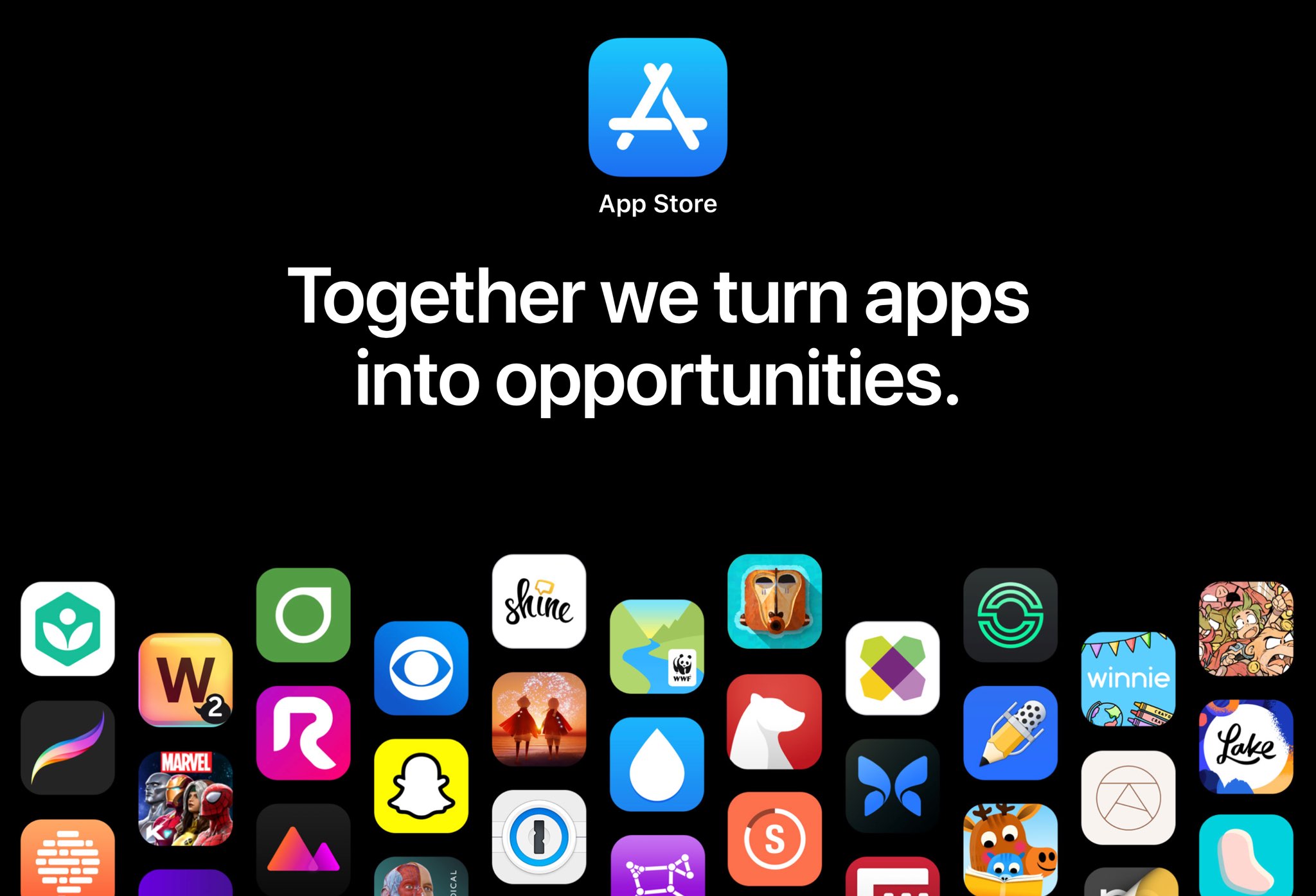A mobile app developer is taking Apple to court over the power it wields over the App Store, alleging the company is pocketing a lot of money at the expense of small developers.
STORY HIGHLIGHTS:
- Kosta E. says Apple is abusing its monopoly power.
- He dissed Apple for hosting scams and copycat apps.
- His FlickType app was targeted by competing software.
- Kosta recently called out Apple for its behavior publicly on Twitter.

The App Store scams and copycat apps
iOS developer Kosta Eleftheriou and his partner Ashley Eleftheriou co-own a company called KPAW LLC, which filed a complaint against Apple in California yesterday. In the filing, the pair accused Apple of “flexing its monopoly muscle against potential competition”.
The Cupertino company purposefully isn’t removing scams from the App Store, the filing continues, holding both its device users and developers hostage. “Apple turns a blind eye to rampant fraud and exploitation to make an easy profit,” it reads.
The Verge provided this excerpt from the filing:
Apple entices software application developers like Plaintiff to develop innovative applications with the promise of a fair and secure App Store in which to sell them. In truth, Apple systematically flexes its monopoly muscle against potential competition through the App Store and profits from rampant fraudulent practices. If Apple cannot buy a desired application from a developer on the cheap, Apple attempts to crush that developer through exploitive fees and selective application of opaque and unreasonable constraints against the developer.
At the same time, Apple permits other developers that Apple does not view as real competition, including scam competitors, to peddle similar, inferior products because Apple profits from their sales. Scammers oftentimes use screenshots and videos taken from legitimate developer’s applications and manipulate their ratings.
Apple does little to police these practices because it profits from them. Apple then lies to its regulators by asserting that it must maintain its monopoly power over the sale of Apple-related applications to protect consumers, when, in fact, Apple lets them get ripped off and exploits the developers trying to deliver innovation to consumers
If Kosta’s name sounds familiar, that’s because he is the same guy who publicly called out Apple earlier this year over an influx of scams and copycat apps on the App Store.
“The App Store has a big problem”
Kosta recently publicly called out Apple in a Twitter thread, arguing that the App Store has “a big problem.” Concretely, he went on to explain how Apple’s indifference to various App Store scams had contributed to lost sales of Eleftheriou’s Apple Watch keyboard app, called FlickType, which iDownloadBlog reviewed back in 2018.
→ How to designate reviews in App Store as “Helpful” or “Not Helpful”
He described his experiences with copycat apps that don’t even work as advertised but have managed to climb the App Store charts thanks to paid reviews and false advertising. Later on, Apple did remove some (but not all) of the apps that Kosta mentioned in his Twitter rant.
The App Store has a big problem👇
You: an honest developer, working hard to improve your IAP conversions.
Your competitor: a $2M/year scam running rampant.1/🧵
— Kosta Eleftheriou (@keleftheriou) January 31, 2021
With that in mind, the fact remains that various scams, copycat apps and low-quality apps have been rampant in the App Store in the past couple of years. We can only speculate as to why Apple is behaving in this way. One possible explanation is that the company doesn’t have enough reviewers to sniff out apps that use such dirty tricks and unfair practices.
In our view, this isn’t very likely. Those apps have been on the App Store for years and Apple’s done very little to remove them from the platform. Customers collectively spend billions of dollars on these scams or copycat apps, and Apple happily takes its commission on sales.
Draw your own conclusions…